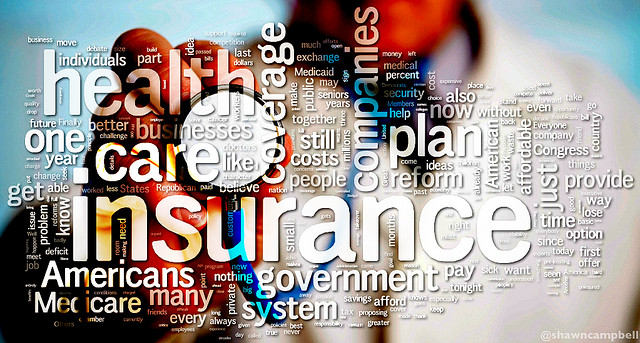Health Literacy: Defining Health Insurance Terms

Confused by health care? You’re not alone. Studies have shown that more than half of all Americans don’t understand basic health care information, and it could affect their ability to make informed decisions about their care and coverage options. But let’s face it: The industry doesn’t exactly make it easy.
Health care can leave your head swimming in a sea of acronyms and complicated terms, whether it’s understanding the difference between an HRA and an FSA, determining the amount of your deductible, or knowing what the doctor means when she mentions your prescription formulary. If you obtain health care coverage through your employer, there’s a good chance your HR department helps you sort through it all. But as more and more people purchase coverage through the Affordable Care Act (ACA) and expanded Medicaid programs, the demand is growing louder for greater health literacy.
What is health literacy?
Health literacy is defined as person’s ability to obtain, read, and understand health information. A person with low health literacy might have trouble finding the right doctor, completing complicated forms, adhering to a doctor’s recommendations, or choosing a health insurance plan. A number of factors contribute to low health literacy, including age, language barriers, socio-economic background and education level.
Whether you’re a seasoned health care consumer or purchasing coverage for the first time, the process of selecting a plan can be a bit daunting. So, here are some of the basics.
Most plans require you to pay a monthly premium, which is really just a fancy word for a bill. The amount you pay in monthly premiums often varies depending on the type of plan you select. For instance, if you have a high deductible plan, your monthly premium will be lower, but you’ll pay more out-of-pocket when it comes time to see the doctor.
Another important factor to consider when choosing a plan is the network of doctors. Not all plans have the same network of doctors, so it’s important to understand which doctors are “in-network” and which are “out-of-network.” If your plan doesn’t include out-of-network benefits, the cost of seeing a physician outside the network could be substantially more – and you may not be covered.
Finally, if you’re taking any medications, you’ll want to check the plan’s drug formulary to ensure your prescriptions are covered. A formulary is a list of drugs that are covered by your health plan, based on a number of factors, including efficacy, safety, and cost-effectiveness. Many formularies have different “tiers,” which have different costs associated with them. For instance, a Tier 1 drug, which will often be a generic prescription drug, will cost you less out-of-pocket than a Tier 3 drug, which will often be a brand-name drug. Learn to navigate drug formulary lists.
There’s a lot to consider.
With so much terminology and so many variables, it’s no wonder people are confused by health care. As industry leaders, it’s our job to make the process less confusing.
This year, 9 million Americans are expected to purchase health care coverage through an online marketplace as a result of the ACA (aka Obamacare). Many of these people will do so from the comfort of their own homes, and without an HR rep to walk them through the process.
Fortunately, health plans like CDPHP are working to make our products more consumer-friendly. CDPHP has retail sites where shoppers can meet face-to-face with a customer service representative. We also have mobile apps where members can manage their health care dollars, find a doctor and see how much a prescription costs.
The so-called “retailization” of health care has forced all of us to think about roles in the future space. The game is changing. It’s time for the players to change with it.
 The Daily Dose
The Daily Dose
 John D. Bennett, MD, FACC, FACP
John D. Bennett, MD, FACC, FACP
Comments are closed.